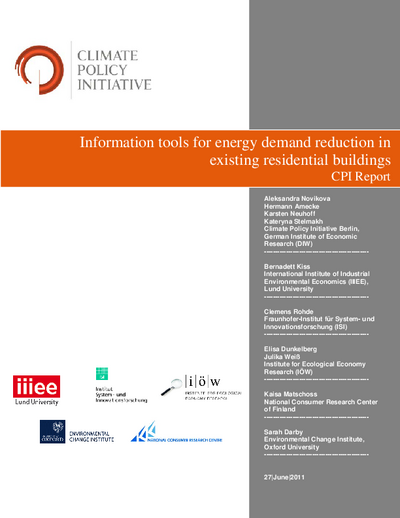Energy-efficient modernisation of the housing stock of detached and semi-detached houses (Enef house)
Domestic space heating and hot water account for over a quarter of final energy requirements in Germany. An energy-efficiency refurbishment of buildings could reduce this energy consumption and the related CO2 emissions by up to 80%. However, despite the availability of numerous support measures and advisory services, only about 1% of the housing stock is currently being modernised per annum to improve energy performance, whereas 3% would appear technically and economically feasible. Above all, the approx. 14.5 million detached and semi-detached houses in Germany offer a considerable potential for saving energy and CO2 emissions.
Yet many private home owners so far appear very reluctant to tackle the subject of energy efficient refurbishment. Insufficient market transparency, but above all a lack of information and motivation are key obstacles to action. In order to remove these barriers, the transdisciplinary research project develops an integrated policy and advisory approach aimed at activating and motivating private home owners to carry out energy- efficient modernisation measures.
By analogy with socio-ecological consumer research, building modernisation is considered a strategic consumer decision which is characterised by a complex interplay of economic, social and symbolic factors. On the basis of a socio-empirical study of obstructive and supporting motivational alliances and constellations of conditions for the decision to modernise, an integrated policy and advisory approach is devised which is geared to the complex decision-making situation of the private home owners and takes account of their apportionment to different target groups. The approach links advisory services, marketing measures and policy instruments, aligning them with the specific decision-making conditions of the individual target groups.
On the one hand, the project draws up recommendations for the innovative further development of existing policy instruments, with which the different target groups can be better reached. On the other hand, instruments are developed to support professional advisors, modernisation service providers and multipliers in their task of creating advisory services which are practical and target group related and enable them to undertake effective social marketing. Best practice experience from selected pioneering EU Member States (Denmark, Austria, Italy) is taken into account.
IÖW Project Team
- Dr. Elisa Dunkelberg
- Dr. Christopher Garthe
- Richard Harnisch
- Prof. Dr. Bernd Hirschl
- Thomas Vogelpohl






